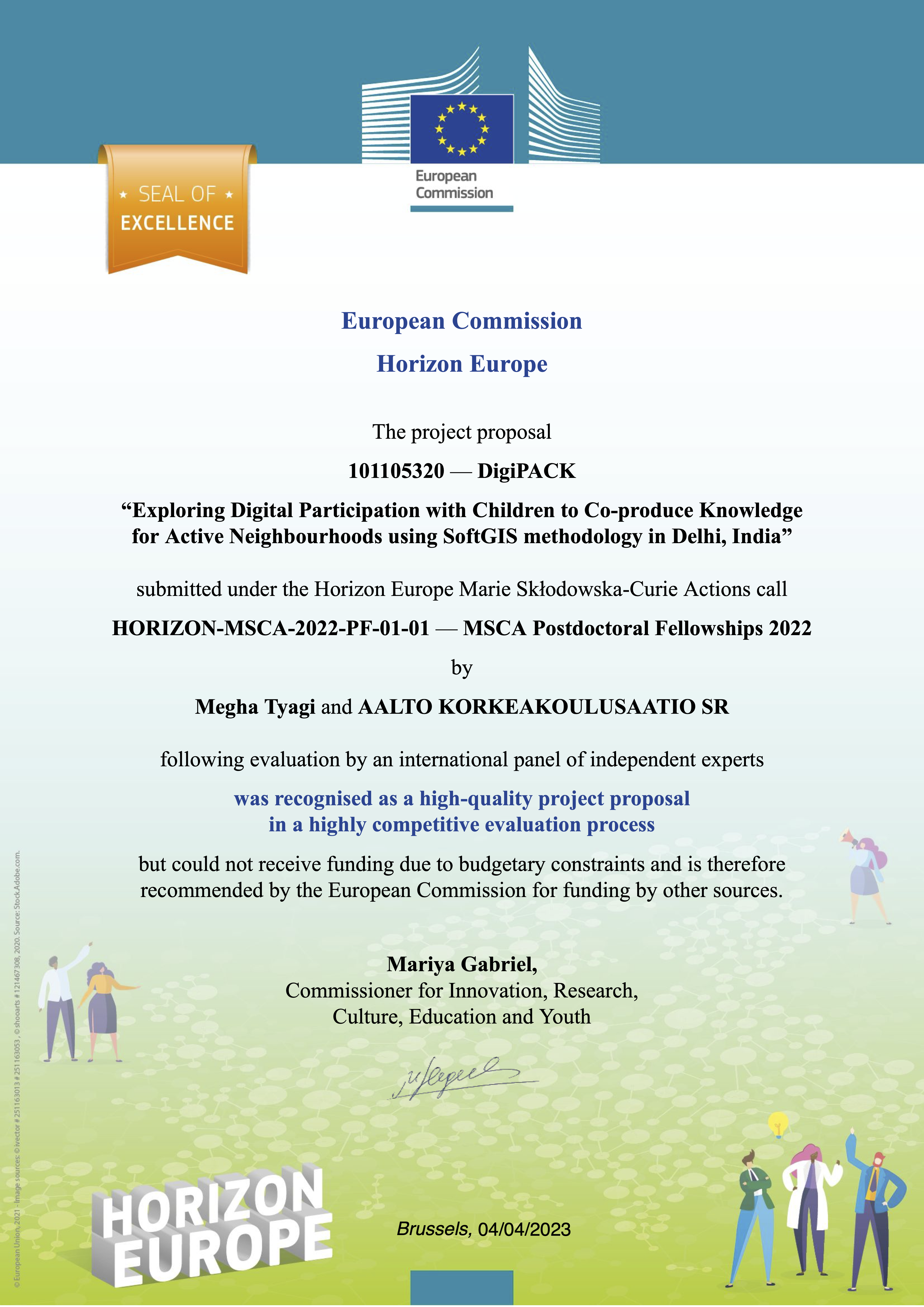The Project Proposal
DigiPACK-Exploring Digital Participation with Children to Co-produce Knowledge for Active Neighbourhoods using SoftGIS methodology in Delhi, India
Children’s participation in urban planning is increasingly recognised as essential in democratising the practice of planning inclusive cities. However, engaging representative groups of children in a meaningful, time-effective and cost-effective manner has been an ongoing challenge for city planners, designers and policymakers for the last three decades. Digital ‘SoftGIS’ is an internet-based Public Participation Geographic Information System (PPGIS) and one of the most widely used by planners to merge the ‘soft’ qualitative nature of people’s localised experiential knowledge with ‘hard’ spatial data layers. It supports a paradigm shift from an evidence-based (objectively produced data through scientific methods) to a knowledge-informed (diverse and plural data formulated through interpretation and understanding) approach in planning. In the last two decades, SoftGIS methodology has been successfully used in more than 200 participatory planning projects but largely remains restricted in the Global North context and with limited participation from children.
To fill this gap, DigiPACK aims to demonstrate the potential of SoftGIS for mapping and comparing active mobility behaviour and localised experiences with children in India. The project will be hosted for a duration of two years by the Department of Built Environment, Aalto University, where supervisor Prof. Marketta Kyttä has pioneered internet-based SoftGIS methodology in collaboration with urban planners and other actors in health and other municipal sectors since 2005. The project results, including contextualised digital methodology and new knowledge on how age, gender, socio-economic status and urban settlement influence children’s active mobility behaviour, will open up new research avenues and have the potential to revolutionise participatory urban planning with children in India, and the Global South more broadly.
The Marie Skłodowska-Curie Actions (MSCA) postdoctoral fellowship is the European Union’s flagship funding programme for doctoral education and postdoctoral training. Established in 1996 as Marie Curie Actions and known since 2014 as Marie Skłodowska-Curie Actions, the fellowship aims to foster researchers’ career development through further training in other countries, disciplines and sectors.
In 2022, the European Research Executive Agency (REA) received 7,044 applications for this call, 17.5% (1,235) of which were selected for funding, with a total amount of €257 million. Applicants with an evaluation score equal to or above 85% but whose proposal could not be funded due to the insufficient budget were awarded the ‘Seal of Excellence’.
DigiPACK received a total score of 86% and hence awarded the ‘Seal of Excellence’ by MSCA committee.
Dr. Megha Tyagi is a mixed method urban researcher, transport planner and architect by education. She holds a bachelor’s (2013) and master’s (2016) degree in Architecture; and an interdisciplinary PhD (2021) intersecting different fields of urban planning, urban mobility and children’s geographies. Her PhD research was one of the earliest from India investigating the impact of neighbourhood built and social environment on children’s independent mobility to school and local destinations. Her research interests lies within the areas of active mobility, inclusive streets, autonomous vehicles, electric mobility and participatory urban planning. Dr. Tyagi is currently involved as an independent consultant in a UK Global Challenge Research Fund (GCRF) project titled “Active and Healthy Environments for Adolescents in India” (AHEAD) with colleagues at North Carolina State University, USA and Australian Catholic University, Melbourne. She also teaches two master level courses on “Planning for Active Mobility in our Cities and “Transport planning in the International Context” at Technical University Berlin.







